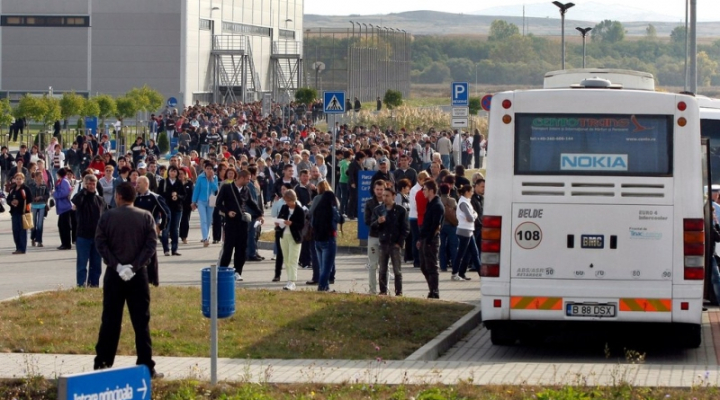Report on the effectiveness of the European Globalisation Adjustment Fund adopted by the European Parliament
The European Parliament has just adopted MEP Marian Harkin’s comprehensive report on the functioning of the European Globalisation Adjustment Fund (EGF), the fund which provided the financial support for the employees made redundant following the closure of two large plants in Transylvania: Nokia in Jucu and Mechel in Câmpia Turzii. As shadow rapporteur on behalf of the European People's Party, MEP Csaba Sógor also contributed to the document adopted on 15 September in Strasbourg.
The European Globalisation Adjustment Fund was created to provide support to people losing their jobs because of major structural changes in world trade patterns due to globalisation, e.g. when a large company shuts down or production is moved outside the EU, or as a result of the global economic and financial crisis.
The former employees of two big companies in Romania - both from Transylvania - have been beneficiaries of such support. In total 2416 people became redundant in 2013 and 2014 in Romania, the European Union approving an EUR 4.5 million assistance in case of the Nokia and EUR 7.2 million in case of the Mechel plant.
According to RMDSZ MEP Csaba Sógor, the relevance of the report lies in the fact that it highlights not only the strengths of the fund but also its weaknesses. "The main strength of this financial mechanism should be the speed of the intervention, but, in practice, this is not the case all the time", explained Sógor.
Although the European Commission has improved project approval times, the process also depends largely on the Member States. For example, until now, compared to other Member States, in Romania the project development and submission process has proved to take a very long time: in the Nokia case 11 months, and in the Mechel case 18 months have passed between the notification of redundancies and the date by which the Romanian authorities have completed the projects and submitted all information to the Commission.
In the opinion of MEP Sógor this period is unacceptably long, given that we are talking about an emergency aid. "This is why it was so important for us that the report urges Member States to strengthen the capacity of authorities who deal with EGF payments" - declared Sógor.
Other priorities of the RMDSZ MEP were: the need to identify the suppliers or downstream producers of dismissing enterprises, the promotion of entrepreneurship and self-employment in professional trainings and the identification of skills needed on the labour market when designing reconversion trainings so that workers could more easily re-enter the job market.











